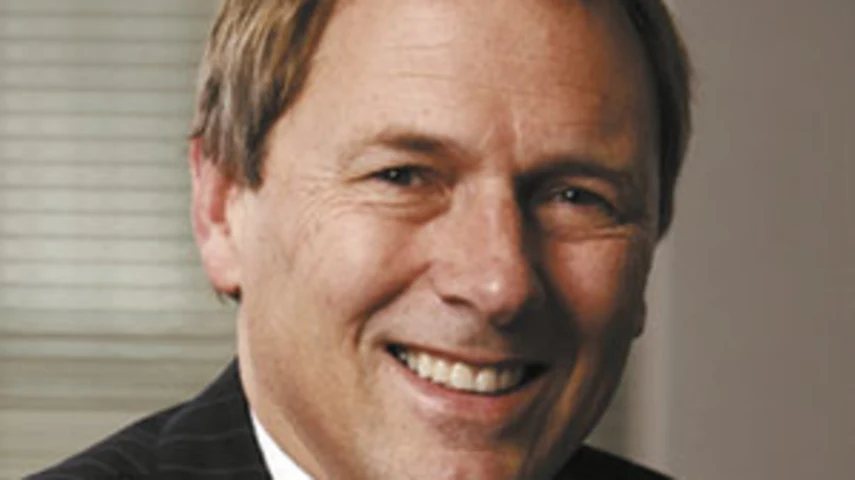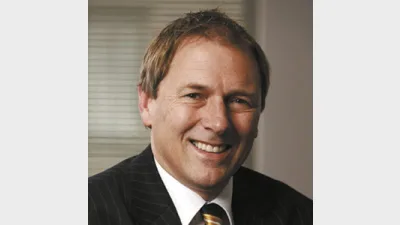Financial planning’s game changers



From his conversations with financial advisers, TAL Limited’s Jim Minto has identified three game-changing topics.
I am privileged to lead a company which enjoys access to some of the best and brightest people in the Australian financial advice sector.
And if I ask any of these trusted advisers about their immediate primary challenges in business, the conversation invariably turns to one – or all – of three potentially game-changing topics.
These are the lingering effects of the 2008 global financial crisis, the Government-led reforms of advice and superannuation in Australia via the Future of Financial Advice (FOFA) and Cooper Review processes and the ongoing challenges of doing business with an ever more savvy, technology-enabled consumer.
It is interesting to see how our industry reacts to these big challenges to uncover opportunity. I observe bright prospects for those who take a step back, strip out the noise and focus on what’s really important; on what I call the fundamental building blocks.
Here’s my top three. For clarity, I have illustrated my points with a subject close to my heart - income protection insurance.
Why? Because loss of income through accident or illness is not only one of those fundamentally important risks we all share as individuals – and hence require protection against – but it also works as a general proxy for my comments about the value of good advice and the future for advisers.
1. The value of good financial advice and why we need it more than ever
All the figures are telling us the same story. That is, while at a macro level we are in good shape, at a personal level we need some help. Australia’s national debt ratio, jobs growth and economic fundamentals are terrific relative to pretty much all of the rest of the world’s developed economies.
Yet, as individuals, we lack confidence. People are concerned - even fearful - about the future. This is borne out in statistics such as record high personal savings into cash and term deposits, and record low borrowings and retail spending.
It is precisely when people are uncertain that they benefit most from wise counsel. That’s when a steady hand from a quality financial adviser can so often make the difference between good decision-making and bad.
And with just one in five Australians receiving financial advice, there is plenty of upside in this equation for everyone.
I see evidence every day of the benefits that quality advice brings to people in very real and tangible ways.
Clearly, advisers have a key role to play in educating clients and the community about the value of adequate protection, including protecting the ability to earn an income.
2. Selling as education: a vital part of what we do
The adage that risk insurance is a product sold, not bought, has a great deal of truth and practical experience behind it.
It’s a situation that makes the role of the expert adviser acting in the best interest of his or her client even more critical.
The end result for many Australians is that their adviser has played a pivotal part in helping them overcome unexpected circumstances that have prevented them from earning an income.
Selling (and educating) Australians about the full breadth and depth of risks and how to effectively manage them through the right insurance choices is absolutely vital.
It’s against this reality that I express my fear that the best intentions of legislators in Australia to protect against any future mis-selling by a minority of people, might inadvertently have yanked the handbrake on a culture of appropriate selling to meet a very genuine need.
Again, using my income protection insurance lens, here are some figures that express that need. Just 31 per cent of Australians have income protection insurance (source: Lifwise).
Yet, we all know that the ability to earn an income is our greatest individual asset.
Further, the required level of income protection cover is assumed to be 85 per cent of gross income (source: Lifewise/Rice Warner), and that the average family with children could expect to need $3,100 per month (source: Rice Warner).
As a nation, these figures equate to a $408 billion income protection underinsurance gap per annum (source: Rice Warner).
Financial advisers who are actively working to fill that gap should be proud of the role they play in helping to create a more stable future for their clients.
Guidance, education, expert product choices (otherwise known as selling): all are an honourable and entirely appropriate part of this good advice legacy.
3. Secure the future by learning from your client
Experience is not a one-way street. Just as clients turn to us for wise counsel and decision-making, there is much we can learn from them – such as the way they prefer to do business in an increasingly digital world.
We all know Australian consumers are increasingly going online to transact. Recent data (source: Commonwealth Bank Equities: Online retail data) shows online retail spending increased by a sizeable 36 per cent over the 12 months to October 2010.
In other words, a $12.3 billion spend during that year. The trend shows little sign of abating.
The figures help to underscore the importance that Australians increasingly place on their online experiences.
To my mind, we must meet our customer on their terms, in their time, and expect increasing demands for fast, transparent information, sharp product pricing and clear product benefits.
It’s a must for anyone doing business in the ‘digital economy’.
Jim Minto is managing director, TAL Limited (formerly TOWER Australia).
Recommended for you
In this episode of Relative Return Insider, host Keith Ford and AMP chief economist Shane Oliver discuss the latest shock consumer price index numbers, which rose to 3.8 per cent in October, as well as the shifting US market and calls for super funds to invest in infrastructure projects.
In this episode of Relative Return Insider, host Keith Ford and AMP chief economist Shane Oliver discuss the Reserve Bank of Australia’s cautious stance in response to persistent inflation, subdued growth prospects, and political shifts affecting the nation’s journey towards net zero emissions.
In this episode of Relative Return, host Laura Dew speaks with Rachel White, head of financial adviser services at Vanguard about how advisers can help Australians to feel confident in retirement.
In this episode of Relative Return Insider, host Keith Ford and AMP deputy chief economist Diana Mousina take a look at the Reserve Bank’s unanimous decision to leave rates on hold on Melbourne Cup Day and whether future cuts are still on the cards.








